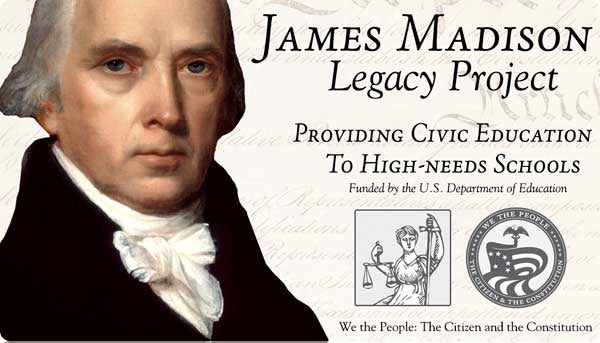CCT Professor Diana Owen's Research with DOE’s Supporting Effective Teacher Educator Development Program
 Research: We The People curriculum intervention for the professional development of American government teachers
Research: We The People curriculum intervention for the professional development of American government teachers
Sponsor: U.S. Department of Education
Professor: Dr. Diana Owen
CCT’s Prof. Diana Owen has been awarded a substantial competitive grant from the U.S. Department of Education’s Supporting Effective Teacher Educator Development (SEED) Program in conjunction with the James Madison Legacy Project (JMLP) that is being implemented by the Center for Civic Education. The JMLP will provide professional development to over 2,000 civics and American government teachers with the goal of increasing the achievement of more than 200,000 high-need students over the next three years. The teacher professional development is based around the We The People: The Citizen and the Constitution program, a long-standing curriculum intervention that has involved over 28 million students and 75,000 teachers in all 50 states since 1987. The program instructs students in the foundations and institutions of American government, and is distinctive for its emphasis on Constitutional principles, the Bill of Rights, and Supreme Court cases. We the People teachers employ active learning techniques, including simulated congressional hearings, to encourage civic learning.
With the assistance of a team of CCT students, Dr. Owen is conducting research on the effectiveness of the JMLP in increasing teachers’ knowledge, improving their pedagogy, and developing their sense of self-efficacy. The study will assess the effectiveness of face-to-face professional development compared to a blended model that includes a digital education component. The team also is evaluating the impact of the teacher professional development program on students’ civic knowledge, dispositions, and skills. The research is notable for its focus on high-need students whose civic education is often short-changed. High-need students include those living in poverty as well as English as a Second Language (ESL), incarcerated, and special needs students.
